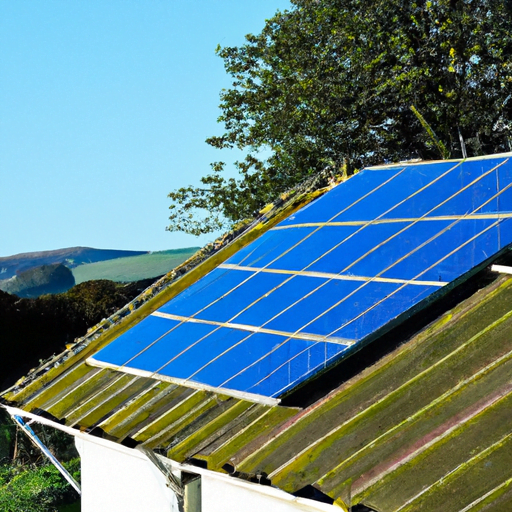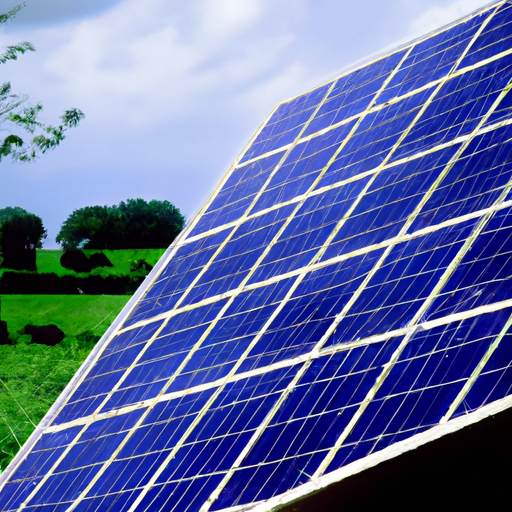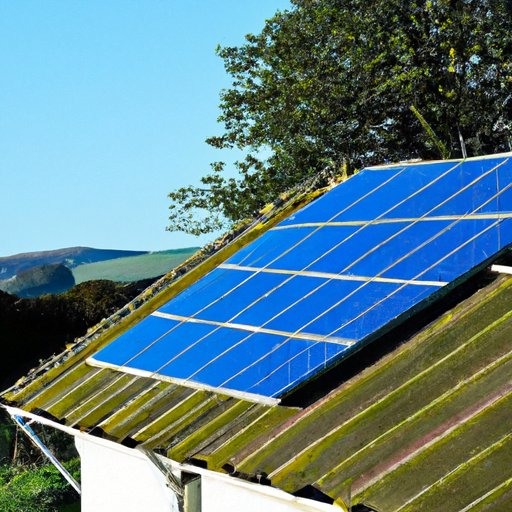Have you ever wondered what it would be like to live off the grid? To disconnect from the hustle and bustle of everyday life, and instead find solace in nature and self-sufficiency? Well, you’re not alone. Many people are becoming increasingly interested in off-grid living, and the good news is that it’s possible, even in the UK. In this article, we’ll discuss the opportunities for off-grid living in the UK and how you can make it a reality.
Living off the grid essentially means living without reliance on public utilities such as electricity, water, and gas. Instead, off-grid living involves generating your own power through renewable sources like solar panels or wind turbines, collecting and purifying your own water, and utilizing sustainable methods for heating and cooking. It’s a lifestyle that promotes self-sufficiency and a reduced environmental impact.
Now, I know what you might be thinking – can I actually live off the grid in the UK? The answer is yes, you can! While the UK may not have the abundance of sunlight or wide open spaces that other countries may offer, there are still plenty of opportunities for off-grid living here. From remote cottages in the Scottish Highlands to eco-communities in Cornwall, there are various options available for those seeking a different way of life.
In the following paragraphs, we’ll delve into the different off-grid living opportunities in the UK, discussing the challenges and benefits of each. Whether you’re interested in homesteading in the countryside or joining an intentional community, there’s something for everyone. So if living off the grid is something that piques your curiosity, keep reading to find out more about the possibilities that await you in the UK.

Exploring Off-Grid Living Opportunities in the UK
In today’s fast-paced and interconnected world, many people are seeking alternatives to traditional ways of living. One such alternative is off-grid living, which involves living independently from public utilities and services. Whether you are looking to disconnect from the grid completely or simply reduce your reliance on it, off-grid living in the UK offers a unique and rewarding lifestyle. In this article, we will explore the challenges and benefits of off-grid living, as well as provide guidance on legal considerations, suitable locations, building off-grid homes, sustainable energy solutions, water and waste management, food production, and community support systems in the UK.
Challenges of Off-Grid Living in the UK
Living off-grid in the UK poses its fair share of challenges. One of the main hurdles is obtaining planning permission and acquiring land suitable for off-grid living. Local authorities have specific regulations in place, and it is essential to engage in thorough research and consult with the appropriate authorities before embarking on an off-grid lifestyle. Additionally, off-grid living requires self-sufficiency and adaptability. You will need to learn how to generate your own energy, manage waste effectively, and ensure access to clean water. Embracing a more sustainable and self-reliant lifestyle also means accepting limitations in terms of space, resources, and modern conveniences.
Benefits of Off-Grid Living in the UK
Despite the challenges, off-grid living in the UK offers numerous benefits that make it a desirable choice for many individuals. Living off-grid allows you to minimize your carbon footprint and reduce your impact on the environment. By generating your energy from renewable sources such as solar or wind power, you can significantly decrease your reliance on fossil fuels. Additionally, off-grid living enables you to live a simpler and more sustainable life, free from the pressures of modern society. It promotes self-sufficiency, reconnects you with nature, and encourages a sense of independence and resilience.
Legal Considerations for Off-Grid Living in the UK
Before pursuing an off-grid lifestyle in the UK, it is crucial to understand the legal considerations involved. As previously mentioned, obtaining planning permission is a necessary step. Engaging in open and transparent communication with local authorities is essential to ensure compliance with regulations. Additionally, building regulations, health, and safety standards must be adhered to. It is advisable to consult a solicitor or chartered surveyor who specializes in off-grid living to guide you through the legal process and ensure your plans are in line with the law.
Finding Suitable Off-Grid Locations in the UK
Finding a suitable location for off-grid living in the UK can be a challenging task. It is essential to consider factors such as access to amenities, proximity to healthcare and emergency services, and availability of natural resources. Remote and rural areas often offer more opportunities for off-grid living, with plenty of untouched natural beauty to enjoy. However, it is important to strike a balance between seclusion and isolation. Being part of a supportive community can greatly enhance the off-grid experience.
Building Off-Grid Homes in the UK
Building an off-grid home in the UK requires careful planning and consideration. The design and construction should prioritize energy efficiency and sustainability. Utilizing passive solar design principles, insulating materials, and renewable energy sources can help reduce energy consumption. It is also crucial to consider water and waste management systems and incorporate environmentally friendly practices. Working with professionals who have experience in off-grid construction is advisable to ensure compliance with building regulations and to create a comfortable and functional living space.
Sustainable Energy Solutions for Off-Grid Living in the UK
Generating sustainable energy is a cornerstone of off-grid living. In the UK, solar panels and wind turbines are popular choices for renewable energy generation. Solar panels utilize the sun’s energy to produce electricity, while wind turbines harness the power of the wind. Both options provide a clean and abundant source of energy. Additionally, incorporating energy storage systems, such as batteries, can ensure a consistent power supply, even during periods of low renewable energy generation.
Water and Waste Management for Off-Grid Living in the UK
Off-grid living necessitates effective water and waste management systems. Rainwater harvesting systems can be used to collect and store rainwater for various purposes, reducing the need for mains water. Composting toilets and greywater recycling systems can minimize water consumption and efficiently manage waste. It is important to familiarize yourself with local regulations regarding waste disposal and to implement eco-friendly practices to minimize environmental impact.
Food Production and Self-Sufficiency in Off-Grid Living
Growing your food is an integral part of off-grid living, promoting self-sufficiency and reducing reliance on external food sources. In the UK, greenhouses and polytunnels can extend the growing season by creating a controlled environment. Raised beds and permaculture techniques can optimize space and maximize crop yields. Additionally, keeping livestock, such as chickens or bees, can provide additional food sources and enhance the sustainability of your off-grid lifestyle.
Community and Support Systems for Off-Grid Living in the UK
One of the significant advantages of off-grid living in the UK is the opportunity to be part of a supportive and like-minded community. Numerous off-grid communities and cooperatives exist, providing a network of individuals who share similar values and experiences. These communities offer a space for collaboration, knowledge sharing, and support. Social media platforms and online forums can also connect you with fellow off-gridders, allowing you to exchange ideas, seek advice, and build valuable relationships.
Conclusion
Off-grid living in the UK offers a unique and rewarding lifestyle, allowing you to disconnect from the grid and embrace a more sustainable and self-sufficient way of living. While it presents challenges, proper research, planning, and adherence to legal considerations can help you overcome these obstacles. The benefits of off-grid living, including minimizing your carbon footprint, reconnecting with nature, and promoting self-sufficiency, make it an attractive option for those seeking a simpler and more sustainable life. By exploring suitable locations, building eco-friendly homes, utilizing sustainable energy solutions, managing water and waste effectively, and investing in food production and community support systems, you can embark on a fulfilling off-grid journey in the UK. So, if you are ready to disconnect and embrace a more sustainable lifestyle, explore the off-grid living opportunities that the UK has to offer.





